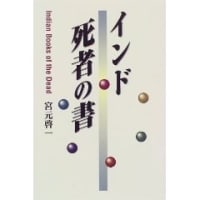
By knowledge we mean not the mastery of masses of information and learning but an understanding of the true nature of things. Out of habit, we perceive the exterior world as a series of distinct, autonomous entities to which we attribute characteristics that we believe belong inherently to them. Our day-to-day experience tells us that things are "good" or "bad." The "I" that perceives them seems to us to be equally concrete and real.
(24p)
【語句、文法】この箇所は、仏教の無常の考え方を述べようとしているのだということは分かりますよね。それが分かれば、この部分のメッセージの本質はつかめたということです。語句で注意しておくべきものは、mastery, distinct, autonomous, entity, attribute, inherently, あたり でしょうか。
mastery:熟達、精通、
distinct:(形)・・・と全く異なった、独特な、はっきりした、
autonomous:自治権のある、独立した、自立性の
entity:実在するもの、存在物、存在、実在
attribute:・・・に帰する(to) 性質、特質が・・・にあるとする(to) inherently:性質、属性などが生得的(本来備わっている)に、
文法で注意すべきところは、to which we attribute characteristics that we believe belong inherently to them という箇所でしょうか。関係代名詞が二つあり、訳すときは少しややこしくなるのですが、こういう場合は、分けて訳すのも一つの方法ではないかなと思います。
we attribute distinct, autonomous characteritics to entities, と we believe these characteristics belong inherently to them の二つの文に分解して意味をとると分かりやすくなりますよね。関係代名詞によって、それぞれの先行詞の内容を説明しているのだ、ということを捉えておけば問題ないと思います。
【日本語訳】知識という言葉によって、膨大な情報や学習に精通しているということではなく、事物の本質を理解しているということを指しているのです。習慣によって、私たちは外側の世界を、独自の、自立的な実在物の集まりとして認識しますが、これらの性質は、これらの事物に生得的に備わっているのだと信じているのです。私たちの日々の経験は事物には、「よいもの」も「悪いもの」もあるのだと告げます。これらの事物を認識する「私」という存在は、私たちには具体的な、実体を持った存在のように思えるのです。











